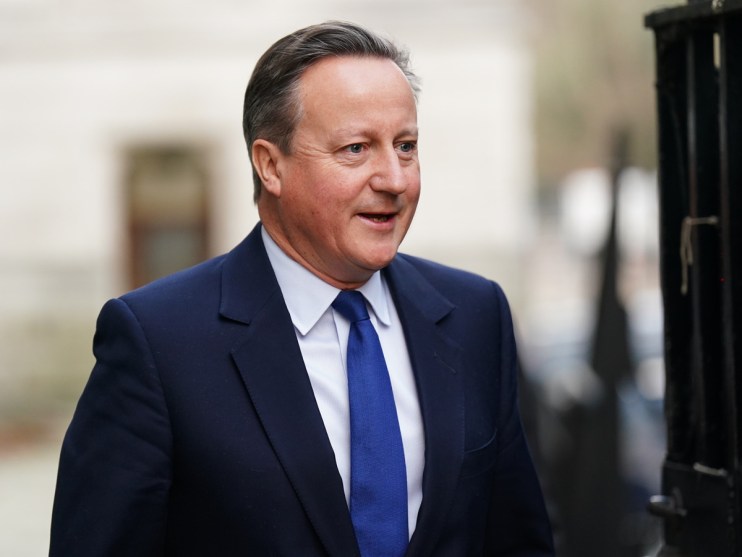UK hints at fresh sanctions after Navalny’s death in Russia

The UK could launch fresh sanctions against Russia in response to the death of jailed Russian dissident Alexei Navalny, the foreign secretary has hinted.
An outspoken critic of Vladimir Putin, Navalny, 47, died at a remote Arctic penal colony on Friday. His body is yet to be released to his family.
His death prompted an outpouring of criticism of Putin’s regime ahead of the two-year anniversary of the war in Ukraine and the Russian presidential elections next month.
Foreign secretary David Cameron joined G7 ministers at the Munich Security Conference in calling for Russia to “fully clarify” how Navalny died, following reports he collapsed after taking a walk.
According to The Times, Cameron used the summit to repeat the call for countries to seize Russian central bank assets in the West to help finance the reconstruction of Ukraine.
Speaking to broadcasters on Sunday, Cameron said: “There should be consequences.
“When appalling human rights [abuses] like this take place… we look at whether there are individual people that are responsible and whether there are individual measures and actions we can take.
“We don’t announce them in advance, so I can’t say anymore than that. But that is what we will be looking at.”
Labour’s shadow foreign secretary David Lammy told the BBC his party would back any government response, including announcing fresh sanctions against Russia.
He also stressed that Labour in power would look to “plug” gaps in the existing measures, saying he “remains concerned about the dirty money that continues to flow through London”.
Lammy added: “The UK has led on sanctions, the issue now is the enforcement of those… I think there are gaps and if we are successful, when the general election is held, I intend to plug those gaps.”
It comes as reports flow from Russia of hundreds of arrests and detentions of those paying tribute and laying flowers in the wake of Navalny’s death, according to a human rights group.
More than 400 people were detained in over a dozen Russian cities this weekend, the OVD-Info group which tracks arrests said, the Associated Press news agency reported.
It comes after Labour leader Sir Keir Starmer told The Sunday Telegraph that in meetings with world leaders Munich: “I made clear to leaders that a Britain I lead will always stand up for our allies, even if others threaten not to.”
His remarks were seen as a rebuke to US presidential candidate Donald Trump who recently said if he were reelected he would not protect a nation behind on its Nato financial commitments and would “encourage” the aggressors to “do whatever the hell they want”.
Starmer has also vowed to seek a new security pact with the EU if Labour wins the next election.
